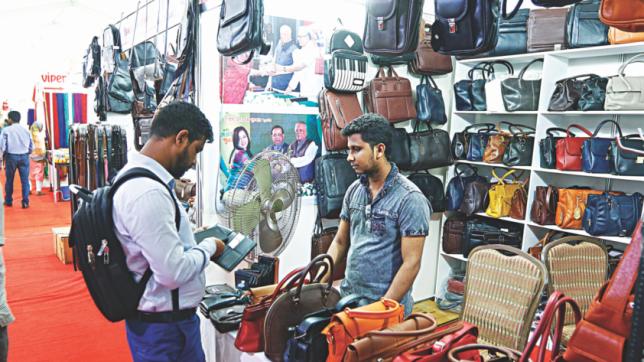Compliant tanners to boost exports: expert

Bangladesh has the potential to expand its share of leather and leather products in the lucrative global market if it can make its tanneries fully compliant with international standards, opined an expert and a labour leader yesterday.
Professor M Abu Eusuf of development studies department at the University of Dhaka said China was increasingly moving towards high-end markets of leather and related goods including footwear.
“This has created opportunities for countries like Bangladesh. But we will have to be fully compliant,” he said.
Abul Kalam Azad, president of Tannery Workers' Union, said the sector would not be able to sustain its progress if it was not compliant. “It has immense potential and can be a much bigger export earner,” he said.
Both were addressing a dialogue on the tannery sector in Bangladesh organised by The Asia Foundation at The Daily Star Centre in Dhaka.
Leather is the second largest earner of foreign currency through exports after garments, fetching $1.09 billion last fiscal year.
In a presentation, Prof Eusuf said the leather sector had the advantages to leverage a secure supply of raw hides and skins locally and to gain from a higher value addition by making products from processed leather.
He also talked about the current situation at an industrial estate for tannery in Savar where most of the 155 tanners from the capital have moved and where many have gone into production.
Discussing the current scenario of environmental compliance, Prof Eusuf said the capacity of the central effluent treatment plant (CETP) in the estate was insufficient.
He said solid waste was not treated properly, sludge was not properly managed, the dumping yard was open and poorly managed and the drainage system required more maintenance.
The capacity and functioning of the CETP is under question and it was not accredited as being environmentally compliant by any agency, according to the economist.
He said the civil engineering part had broadly been alright but mechanical and electric equipment supplied to the CETP were of low quality.
Pipelines and motors used in the CETP are not capable of taking the load of the peak season, said Prof Eusuf. He said Bangladesh needed tanneries compliant with a Leather Working Group (LWG) standard. “There should be no compromise on this,” he said.
The LWG is made up of member brands, retailers, leather manufacturers, chemical suppliers and technical experts that have worked together to develop an environmental stewardship protocol specifically for the leather manufacturing industry.
“There is a need for a high level monitoring authority and the tannery industrial estate could probably be better managed if it was implemented by Bangladesh Export Processing Zones Authority as a special economic zone,” he said.
Prof Eusuf, also director of the Center on Budget and Policy at the University of Dhaka, sought incentives for better environmental management and ensuring occupational safety at the tanneries.
Sanjay Kumar Thakur, field engineer for the CETP at the Savar estate, said the plant was “working partially” and that the chrome recovery unit was not fully operational.
Sadat S Shibli, programme director of The Asia Foundation, moderated the dialogue.
